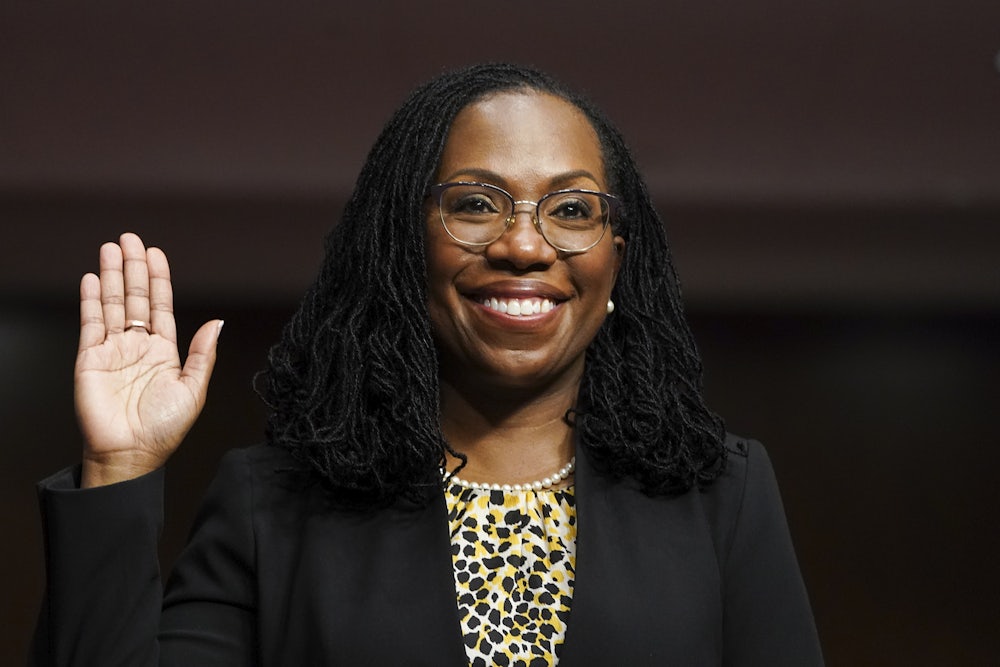In one of the most divided Senates we can remember, President Joe Biden will make his first Supreme Court nomination to replace retiring Justice Stephen Breyer. He has promised to make history, appointing the first Black woman to the highest court in the land. Black women make up only 3 percent of the federal bench, and Biden has already made real strides in diversifying the bench.
Yet angst about the appointment is inevitable. The president has suffered two big losses, the Build Back Better package that contained real investments in people and the future and, more recently, voting rights, a huge blow to democracy in general and to Black Americans in particular. And with the Supreme Court more politicized than ever, and more ideologically out of step with the mainstream of the country, it is more important than ever that Biden keep his promise: win confirmation of a Black woman and lean hard into the strategy to ensure the nomination.
There are three reasons for hope. First, the choice of nomination should be all about the qualifications of the candidate. Black women on the federal bench are there because they are qualified. Period. In fact, it’s damn hard to get there, so we have to understand just how qualified they must be to overcome the challenges in nominations for such prestigious and coveted positions.
Qualified Black women are in the wings. Let’s assume the nominee is Judge Ketanji Brown Jackson, widely believed to be the likely nominee. Judge Jackson was recently confirmed to sit on one of the most prestigious federal appellate courts in the country, the District of Columbia Circuit. Her qualifications include her clerkship for none other than Justice Breyer. Consider that between 2005 and 2017, 85 percent of Supreme Court clerks were white men, and only 20 out of 487 were Black. That is a problem that needs fixing. But it also shows just how hard a job it is to get, and we know, as Justice Sonya Sotomayor herself noted, lawyers of color often have to be better to be recognized as qualified. Brown Jackson is an experienced jurist with eight years on the federal district court in D.C. before her elevation in June.
Second, it matters to Black people, and for good reason, that Biden is seen as being in our debt after we helped him win the White House. The debt is in arrears after the loss on voting rights. It’s not just about political payback. It’s about diversity of experiences on the bench to ensure a robust set of perspectives and debate, and it matters. Remember that it was Justice Sandra Day O’Connor, the first woman appointed to the Supreme Court, a Ronald Reagan appointee, who penned the 1982 opinion in Hogan v. Mississippi, which struck down that state’s sex-segregated public nursing schools. It was a 5–4 opinion, and O’Connor wrote that states may not “close entrance gates based on fixed notions concerning the roles and abilities of males and females.”
And it was Justice Thurgood Marshall, the civil rights icon and first Black justice, whom O’Connor credited with educating her on the importance of the Black experience, leading her to pen her 2003 opinion upholding the University of Michigan’s affirmative action admissions program. She wrote, “At oral arguments and conference meetings, in opinions and dissents, Justice Marshall imparted not only his legal acumen but also his life experiences, constantly pushing and prodding us to respond not only to the persuasiveness of legal argument but also to the power of moral truth.”
We need the experiences of the people who look like this country, and that has been sorely lacking on the bench. Consider access to reproductive health. Black women are more likely to have unwanted pregnancies, are more likely to die from pregnancy-related conditions, and are less likely to have decision-makers they encounter who know and understand not only that this is so but why it is so. Biden needs to deliver on his promise, and this is one important promise he must keep that will matter.
Third, Judge Jackson has had the political support of a majority of this current Senate. She earned 53 votes in the current Senate when she was elevated to her current position. She got every single Democratic senator’s vote, including those of Senators Manchin and Sinema, who unhelpfully joined Republicans on the critical policies Biden lost. She also received three Republican votes, from Chuck Grassley, who is the ranking member of the Senate Judiciary Committee, Susan Collins, and Lisa Murkowski.
What is obvious, I am sure, to the White House and the advocacy community is that notwithstanding these facts, they will also become battle lines. We should assume and be prepared for an attack on a nominee’s credentials. Judge Jackson has spent less than a year on the D.C. Circuit Court. Some may claim it’s too soon and she needs more appellate court experience. Many have had far less experience. Chief Justice William Rehnquist had no experience as a judge before his confirmation to the Supreme Court. In fact, nine of the 17 white men who served as chief justice had no judicial experience before the Supreme Court. None. Justice Clarence Thomas had a mere 16 months on any federal court before his ascendance to the Supreme Court. Judge Jackson has seven years on him.
Senators Manchin and Sinema, along with Senators Grassley, Collins, and Murkowski, should be seen and treated as allies for this nomination because they have been allies, especially if the nomination is Judge Jackson, but even if it isn’t. These are senators who have demonstrated that they will vote for a Black woman to a powerful seat, and we want to keep it that way.
The attacks on a Black woman nominee will come from the elements who are uninformed and afraid of things like critical race theory and the changing demographics of this country. We should not be naïve about this point, and we should not shy away from the fight. When it comes to defending a Black woman nominee, we must be unified and prepared, and we will prevail.








